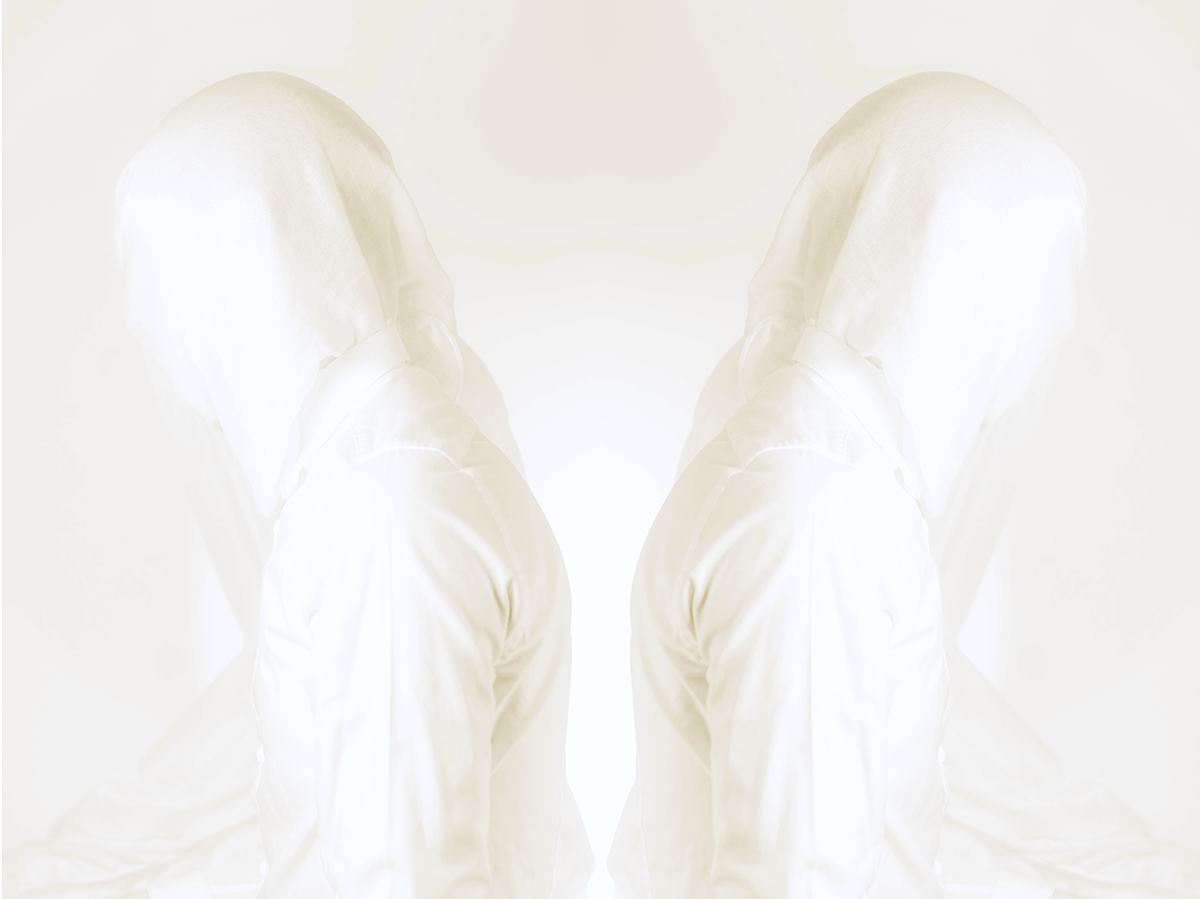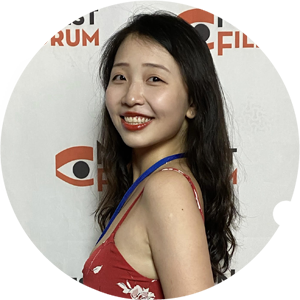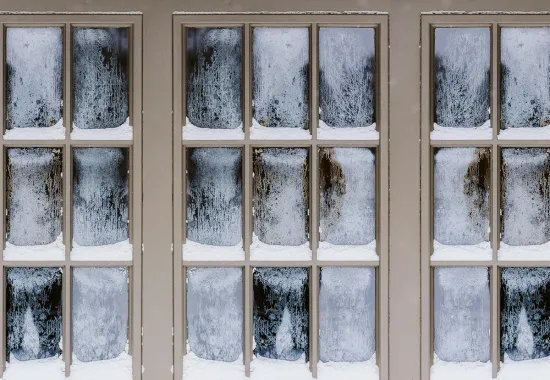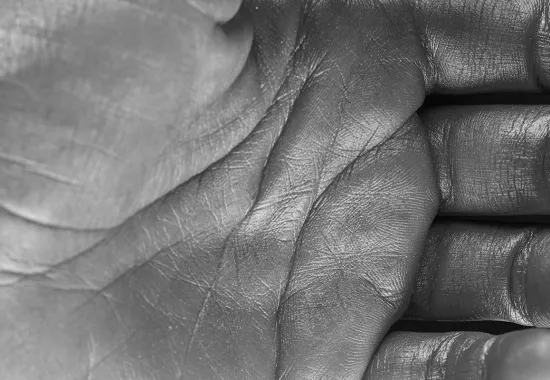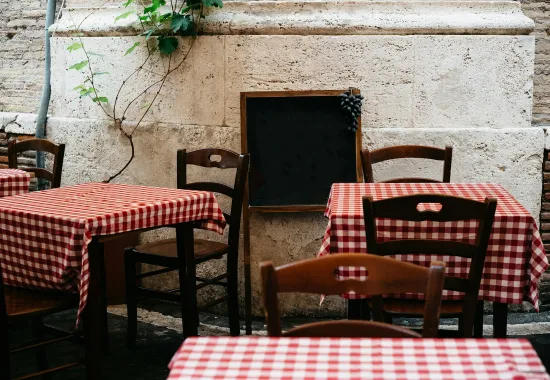Child's Play
These children, they all looked alike. Their eyes were far apart and deviated outward, their limbs crooked like frogs. What disturbed me the most was their wide and foolish grins, which betrayed their conditions more than anything else.
The summer after third grade, I was referred to Doctor Zhu for my asthma. He was a renowned specialist in pediatric cerebral palsy, but his only son had asthma, so people assumed that fatherhood had established him as an expert. His clinic opened every Monday morning, and there my mother and I were, in a waiting room full of children with CP from all over China.
As a regular at hospitals, I was used to the sterile white of the walls and the strong odor of disinfectant, but Dr. Zhu’s clinic exceeded my expectations. The overwhelming amount of drooling and limping children confined in one room terrified me. My mother didn’t scold me for wrinkling her dress when I held onto her. Instead, she made me sit down on the stainless steel bench, although I was afraid of catching the other children’s invisible germs.
That was when we met Hua’s mother, a stout woman with deep tear troughs and clusters of sunspots. At my age, I never found any mothers pretty. What was the point of comparing the appearance of mothers when they all had crow’s feet and saggy jowls? The only adjectives that felt right to assign to them were that some mothers looked well-rested, whereas some looked fatigued. Hua’s mother seemed like she hadn’t slept in years.
She said to my mother, “Your daughter doesn’t show.”
“Excuse me?”
“She looks normal. How did you raise her so well?”
“Oh, no! She has asthma, not CP!”
My mother glanced at me with an expression I had not seen before, like it was the first time she felt grateful for me. I was not an easy child to take care of. My asthma attacks often ambushed me at around four in the morning. I dreamed of being swallowed into the stomach of a whale. The water level was above my nose, just enough for suffocation. Even though I knew it was a dream, I couldn’t open my eyes. I tried to whimper so that my mother would come wake me up, but in the end, it was always me who saved myself from the nightmare. My chest hurt so much that I couldn’t lie flat. I curled up, gasping, with cold sweats over my forehead.
We did not own a car. My mother rushed me to the ER in a taxi when the first few attacks happened, but as my asthma turned out to be chronic and not necessarily deadly, she made me wait it out on the balcony as she went back to bed. My flare-up usually soothed a little during the day. When my mother was on the phone with her friends, she said that children had the tendency to act sick for attention. “As long as you don’t make a fuss, you’ll find that your kid’s illness is not as serious as it seems to be.”
She said it loud as if she could have shamed the asthma out of me.
After seeing the children at Dr. Zhu’s clinic, however, my mother gained a fresh sense of superiority. With each Monday visit, she spent more time organizing her outfits. She put on jewelry, while I took out the heaviest book from the bookshelf to avoid being mistaken as a CP patient. Years later, I can still recite the opening line because I barely went beyond the first page: It was in July 1805, and the speaker was the well-known Anna Pavlovna Scherer, maid of honor and favorite of the Empress Marya Fedorovna.
My mother sat down, blushing. To distract herself from her embarrassment, she turned around and slapped me. “Why did you bring a book to such a dirty place?”
Normally, there would be two dozen children in the waiting room, ranging from whiny infants to Lao San, the gangly teenager who would fight any toddler over the TV remote. My mother told me not to stare at the poor things because it was not a zoo, but Hua was constantly staring at me, with a string of saliva hanging out of her half-open mouth.
Growing up in my neighborhood, I didn’t know anyone who consulted with the deities for spiritual guidance. Everyone was busy, in Beijing or in Heaven. When we talked to deities, we cut straight to business: find me a match, help me graduate, make me rich and I will donate. Now I wonder if those Mondays were my closest experience to a religious gathering. Once every week, parents from across the country brought their children to a crowded room, waiting for Dr. Zhu to sell them hope. Dr. Zhu narrowed his eyes behind his thick glasses. His prescription of high-dose albuterol made my heart pound like a bunny trying to escape.
Maybe it was not Dr. Zhu who mattered. Maybe the parents found solace in the cohort, that their kids were less noticeable among their own kind. That would explain their cold looks when my mother and I entered the room. Hua’s mother was the only one who talked to us. She told my mother that her husband left her after Hua was diagnosed. Unlike most out-of-town parents at the clinic, Hua’s mother did not have an accent, which put her in favor with my mother, who considered herself a Beijing local.
Hua’s mother said, “I’d trade Hua’s CP with your girl’s asthma in a heartbeat.”
I hated her audacity to put her daughter and me in the same sentence, but my mother seemed sympathetic. She had no idea of my deep aversion to Hua. Every time I struggled with a math problem in my exercise book, or when a phrase was on the tip of my tongue, I couldn’t help but think that Hua’s symptoms were catching up with me.
Hua was about my age and height, which made everything on her face even more uncanny: her messy straw hair, her saddle nose, her asymmetrical nostrils. When I fixed my gaze on the book, I could feel her eyes on my skin.
Perhaps Hua was staring at me because I was the only girl wearing a dress. I had a deep fondness for dresses because they reminded people of my femininity, which was heavily correlated to physical frailness in classic Chinese literature. My asthma seemed easier to be forgiven when Dream of the Red Chamber associated pale skin and a slight wince with the protagonist’s love interest Lin Dai-Yu, the fictional epitome of delicate beauty. During PE, I sat in my little sundress under the tree and watched my classmates marching and sweating in formation. Occasionally, I let out a cough or two, feeling dainty.
Most parents in Dr. Zhu’s waiting room didn’t buy dresses for their daughters because the CP girls didn’t know how to sit with their legs closed. I tried to hold up Leo Tolstoy to shield myself from Hua’s gaze, but my book was grabbed out of my hands by Lao San.
Lao San meant number three. At six feet one, he carried a big head that made him look like a bean sprout. I had heard his father calling him Number Three in a loud and strong peasant dialect many times. According to the gossip from Hua’s mother, Number Three was the only son. His two older sisters had both quit their studies to work for their brother’s medical bills. Maybe Number Three wanted to play with me, thinking it was a game of peekaboo when I hid my head behind the book, but I turned to my mother, tugging at her sleeve, crying for justice.
Dignified, my mother stood up and asked Number Three’s father to discipline his son. She was at a loss for words when the swarthy, pockmarked man answered her with a curse.
Hua’s mother said, “Let it go.”
My mother sat down, blushing. To distract herself from her embarrassment, she turned around and slapped me. “Why did you bring a book to such a dirty place?”
•
The next Monday when I walked into the waiting room, I froze at the sight of Hua sitting on the bench in a washed-out cotton dress that looked too familiar. In the heat of their budding friendship, my mother had given my old clothes to Hua’s mother without asking for my opinion. Now that Hua was in my dress, it was like seeing myself with an idiotic face. I wished I could die, but Hua’s mother was happy. She tried to associate her daughter with normalcy by restlessly pointing out the similarities between Hua and me, to the point that even my mother mildly regretted her decision, until Hua’s mother asked, “Have you ever thought of having a son?”
“What do you mean?”
“After Hua was born, they told me that I was qualified to have a second child. It didn’t make a difference since my man ran off, but do you see the point? All you need is a certificate saying your firstborn has a mental disability like CP, and then the one-child policy no longer applies to you. Your daughter is smart. She can play dumb.”
I had never hated someone as much as I hated her.
That was it, her ultimate plan to merge her halfwit daughter into me. I turned to my mother, aghast to see her ruminating over Hua’s mother’s words.
“I can connect you with the right doctor,” Hua’s mother said. “And a red envelope won’t hurt. But you don’t have to decide now.”
My mother pursed her lips. I did not dare to breathe loud.
•
On the morning when my mother took me to the right doctor, she made chicken soup rich with nutritious herbs to keep me energized: wolfberries, silver ear fungus, red dates, and lotus seeds. Cooking was her way to say love, to say sorry. I drank the soup with a spoon and watched her put a stack of cash into an envelope. The oil from the dead chicken weighed in my stomach.
“I’m not going to bring out the envelope right away,” she said, both worldly and hopefully. “Maybe your acting will be good enough, and we don’t have to pay.”
I wanted to correct her: if she had paid up front, maybe I didn’t have to play mentally disabled. But my mother was a bargaining artist. At the market, she could always get the freshest cabbage at the lowest price. When we waited outside the doctor’s office, she stood and sat several times, constantly flattening the hem of her dress.
The nurse called my name. My mother hastily pulled the rubber band off my ponytail. I drew a breath between my teeth while my mother rubbed my hair messy.
The nurse repeated my name impatiently.
My mother nudged me into the office. Sitting behind the desk, a young female doctor was wearing a soft white uniform with her hair up in a tight bun. When she adjusted her lean legs, her high heels made graceful little knocks on the floor.
“My daughter isn’t normal,” my mother said. “She’s retarded, or mentally handicapped, however you call it these days.”
The doctor raised a skeptical eyebrow.
My mother pinched my shoulder. “Come on. Show her.”
I managed a pitiful grin like Hua always did. Maybe I should drop some saliva to make things look more convincing? I pressed my tongue against my palate, but my mouth was as dry as withered barks. My palms began to sweat. My mother pinched me harder, and I squeezed the roof of my mouth again.
Suddenly, my throat was filled with a rancid smell of dead chicken, my stomach cramping. I fell off the chair, my shoulders shaking uncontrollably.
I threw up on the smooth marble tiles.
The doctor shrank back into her chair with a revolted look. Too far. I had gone too far. My note was to dispel her doubts, not to disgust her. Before she threw us out of her office, my mother slid the red envelope across the desk. The doctor scribbled something on a paper, then she pushed it toward my mother, who held the piece of certificate tightly against her chest.
I sat on the floor, panting. Because I did not have the heart to hate my mother, I hated Hua’s mother. I had never hated someone as much as I hated her.
•
The next Monday, my mother braided my hair and put me in a pink dress with red cherry print. When we entered Dr. Zhu’s clinic, I saw Hua sitting in my old dress on the bench and rocking from side to side.
I said I wanted to go play.
“Do you want to come?” I asked Hua, keeping my gaze on her forehead to avoid her bulging fish eyes. Hua’s mother was so happy with my invitation that she shoved Hua into my chest.
I walked down the hallway with Hua following behind. For a second, I imagined pushing her out of the window, but then I reminded myself that Hua could get away with murdering me, not the other way around.
At the end of the hallway, I led Hua into the restroom. Once the two of us were inside, I said, “I want my dress back.”
Hua shook her head. I quickly changed my tactic, did a flowery little swirl in my bright-colored outfit. “If you give me your dress, I’ll give you mine.”
She stared at me, a silver strand of saliva leaking from her mouth corner. I felt my courage fading. “Whatever. I’m leaving.”
It was not a bluff. I was chickening out. But in that moment, I saw hesitation flitting across her face, and I pretended to walk away, until Hua made an Ahh sound to stop me.
I waited.
Hua slowly undressed, and I eyed her up and down in an anatomical way. If she were beheaded, her torso would look like mine, her arms hugging herself from the chilly air. I picked up the off-white cotton dress with a cold satisfaction, yet the residue of her warmth on the fabric made me sick. She extended an arm to me, waiting for me to fulfill my promise.
I turned my eyes to the window, and in a heartbeat of singular perfection, I knew what would come next, as if it was the only natural thing to do.
I tossed the dress out of the window.
And I ran. I ran like I was fleeing a murder scene. Collapsing in my mother’s arms, I coughed for air. “I’m having an asthma attack.”
She hurried to search for my inhaler in her purse. A nurse summoned Dr. Zhu, who rubbed his hands together like a giant fly. “You should take her to the ER. I can’t handle acute attacks.”
My mother carried me under her armpit like I was a baby chick. Once she brought me outside, I said that the fresh air made me feel better.
She let out a sigh of relief. “See? I’ve always said that your asthma is not as severe as you make it look like.”
I nodded. On the bus home, I sat close to my mother, thinking of the dress tossed outside the window. I wondered how long it would take to reach the ground. A dress without a body must be light as a cloud.
Recommended
The Salamander
Herring
The Old Man in the Café


